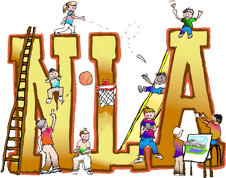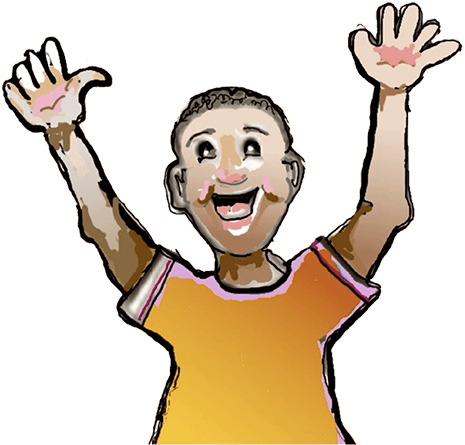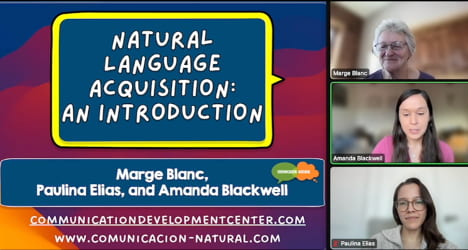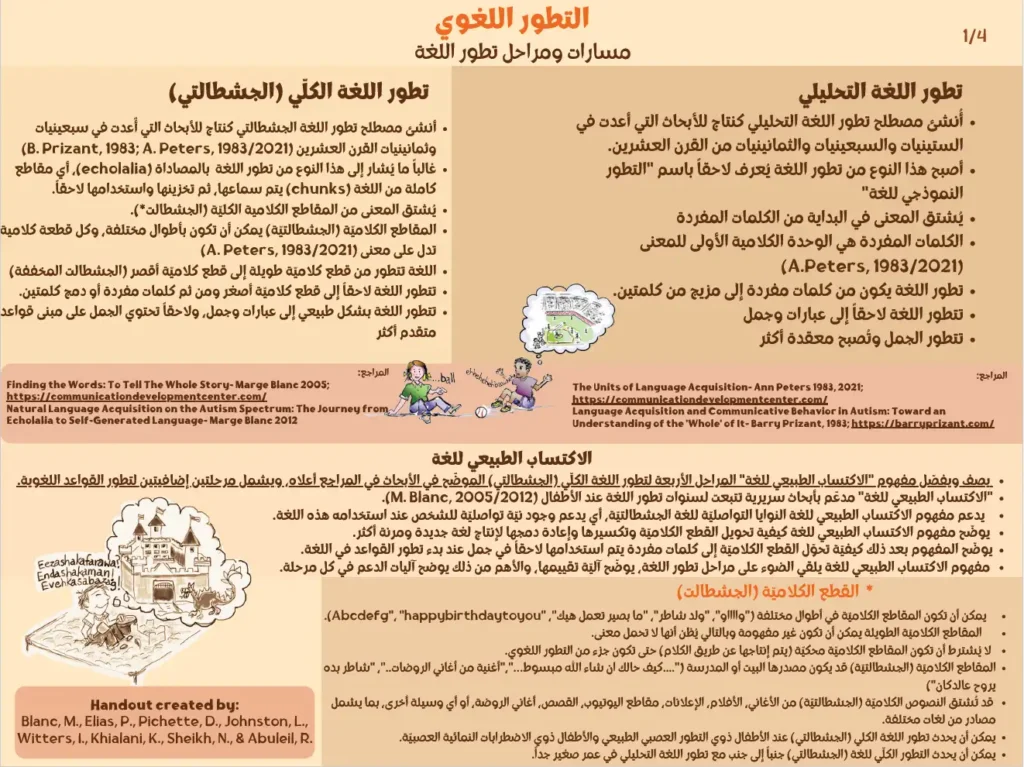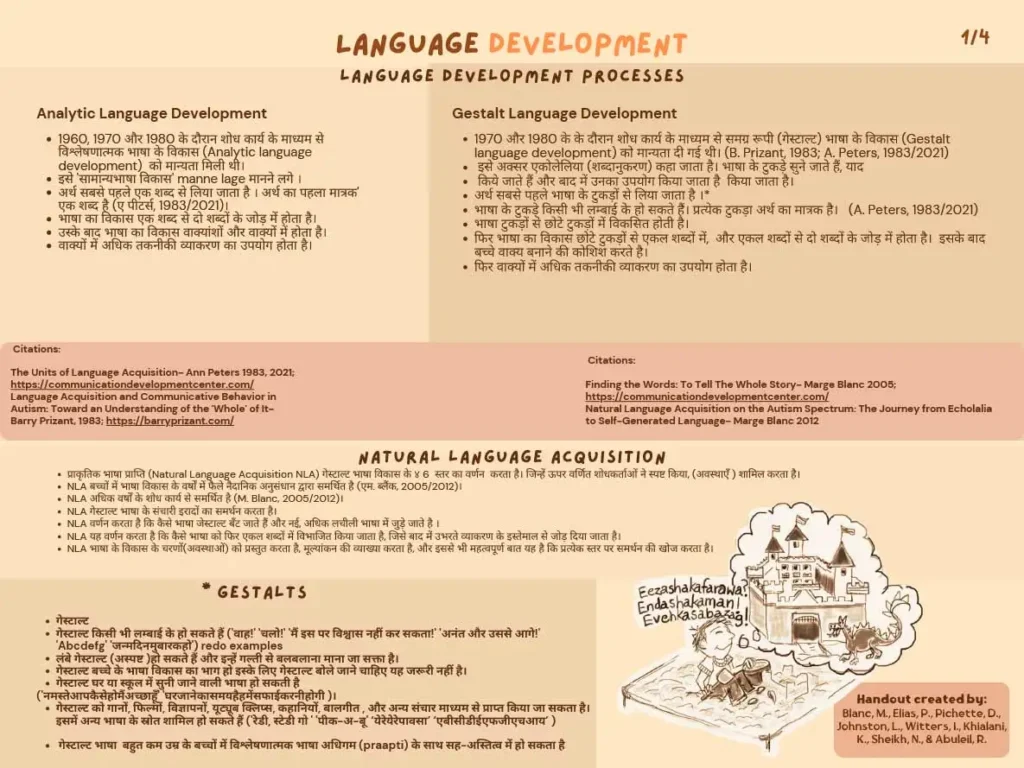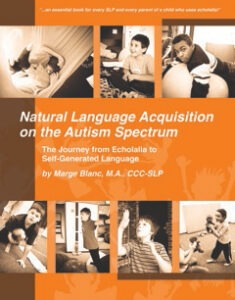Welcome!
You have come to the right place! It is here that you will discover amazing truths about language development! And it is our hope that through this site you will learn that language development:
- is far more inclusive than you ever imagined.
- has more paths to success than you were taught in school.
- is natural and accessible for all children when we understand and embrace the two main paths children follow
The truth is that both styles of language development are typical. In fact, they both lead to original, complex, self-generated language. What’s different is how each begins. One begins with language gestalts (whole phrases, songs, stories, movies); the other with single words. Each is natural, research-verified, and predictable — however, analytic language development is commonly known while gestalt language development remains unfamiliar to many of us. Why? Because analytic language processing (ALP) seems logical to us. Single words are easier for young children to say, and easier for us to understand. ALP can be easier to follow and document in kids’ development; therefore it has been easier to study. GLPs have a hard time making their long gestalts understood, are so often misunderstood and ignored, and get left out of today’s quantitative (large group) research.
But there’s another reason ALP has the reputation of being the ‘only way.’ Gestalt language processing (GLP) seems pathological to some people, because language gestalts have been seen as ‘meaningless echolalia.’ That terminology and prejudice have set us back many decades. So, even if you’ve never heard anything good associated with echolalia, here is where you will find out that there’s everything good about echolalia. It’s natural language development!
This website is the home of everything you have ever wanted to know about gestalt language development. How did this come to be? Because of Natural Language Acquisition (NLA), the culmination of clinical research that brought GLP back into focus, and back on the map.
Using Natural Language Acquisition to Support Autistic and Neurotypical Gestalt Language Development.
Please join the discussion!
What is NLA?
It is a detailed description of gestalt language development, supported by the clinical research of Marge Blanc and colleagues (M. Blanc, 2012). Founded on the pioneering work of Ann Peters (A. Peters, 1983), and Barry Prizant and colleagues (B. Prizant, 1983), NLA evolved as a way to quantify and detail the process: all the way from Stage 1 (use of language gestalts) to Stage 6 (use of complex grammar). NLA describes the logical, natural, developmental process of gestalt language development, and provides a road-map for supporting children in natural, conversational, developmentally-appropriate ways.
It’s an exciting and amazing story, one that we will bring to life on these pages. As we continue to spread the word, more and more GLPs are being seen as the capable communicators they are and will continue to become. No longer are these children seen through the lens of ALP, or seen as disordered children who need to be prompted to achieve a small semblance of analytic language development. Instead, they are developing language naturally — the gestalt way!
You will learn about it here. You will learn how to spot GLPs, and develop the confidence to support them in their journeys from language gestalts to complex self-generated language.
You are here!
And now that you are here, we want to give you a road map, really a star map, to our website…to help you decide where to travel next. Yes, your journey is all about language development, but along the way, you will find resources about Self-regulation, Child-led therapy, Speech praxis (motor planning), Language retrieval, Bilingual language development, Multi-modal communication, and more. As the saying goes, “To infinity…and beyond!”
So let’s get started! First, with a word about development in general…because language development is a part of child development. And child development is natural. That should go without saying, right? But when children are delayed in development, well-meaning people sometimes think that they can be ’taught’ alternative strategies. Kids do learn things, but those strategies don’t replace development, and actually hinder it. But when we partner with our children, we have the potential to support them in *becoming* the people they already are. They were born to be themselves; and with our support, can develop into the freest version of themselves.
Next, please continue to consider language development as part of child development. It is part of life — experienced in individual ways. Different cultures have conventions that decide some of the rules of language forms (grammar, word structure, etc), but language itself is the ‘close-caption’ part of an experience. It’s the sound track, the surround-sound, a symbolic part of experience. And language processing is part of ‘experience-processing.’ Some young children first experience language as single words (‘ball’); others first experience it as gestalts (“There it goes. The ball went out of the park.”). This is the difference between analytic and gestalt processing! On your journey, you will learn all about it!
So who are we? The Communication Development Center (CDC) is an outgrowth of a long-standing clinical practice that developed Natural Language Acquisition (NLA), and is still the home of NLA. Now CDC has become an international information center, and is becoming an important resource base, with incredible articles, blogs, posts, handouts, and a full library of materials available to peruse now or later. As we expand our universe of possibilities, you will be able to read and share everything on this growing site free of charge. We feel passionate that this information be accessible to everyone. While there are links to purchase the original NLA book, and three professional-level NLA courses, the information here is extensive and completely free. This information doesn’t ‘belong’ to anyone, and exclusivity is antithetical to the universal sharing that this movement is about. Just as NLA Facebook groups are spreading internationally, we are cognizant of the fact that this natural language acquisition style needs to be understood by everyone. The days of pathologizing echolalia, and considering GLPs to be substandard ALPs, can no longer continue. Now into the ‘…beyond.’ Welcome!
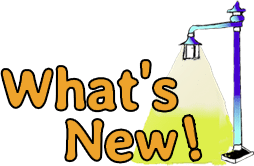
FREE One-hour Introduction to NLA w/ Marge Blanc, Paulina Elias, and Amanda Blackwell
This is a FREE one-hour, pre-recorded introductory presentation that describes the overall concept of gestalt language processing (GLP), provides some of the history of the scientific evidence, and provides a brief overview of the stages of Natural Language Acquisition (NLA).
We are so excited that our International NLA Handout is now complete in Hindi and in Arabic! Here’s a sneak peak at each. They are both downloadable in the International thread!
Thanks to our great Translation Team for making this possible! We’ve been careful to not only translate the language, but also take into account cultural elements — AND consider specifics of grammar development from Stages 4, 5, and 6 in each language!
Collectively Connecting Blog
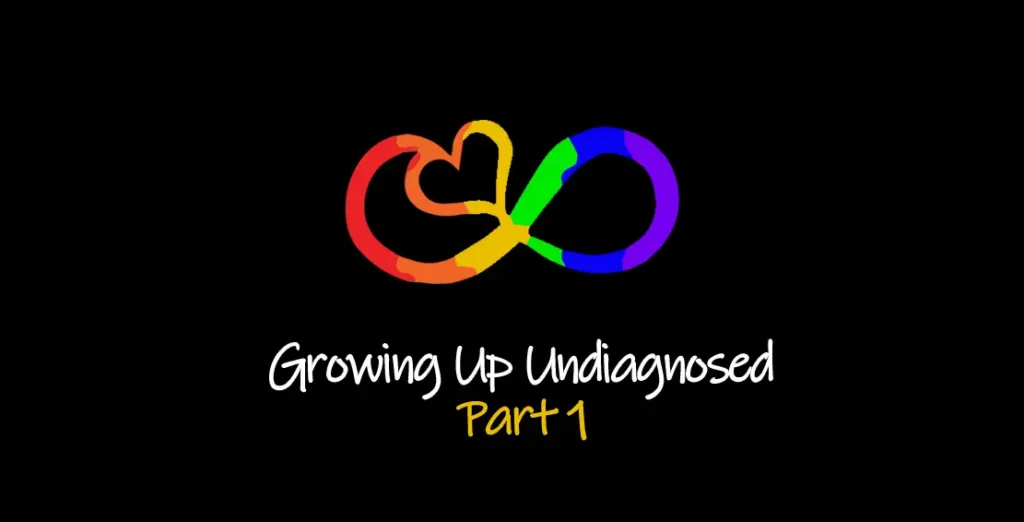
Growing Up Undiagnosed Part 1
Growing Up Undiagnosed: Part 1 Reflecting upon my childhood floods my brain with a million vivacious memories each made complete with an emotional tie that anchors them in my storage system within my brain. I realize now, as an adult, that I was a conundrum to the adults in my
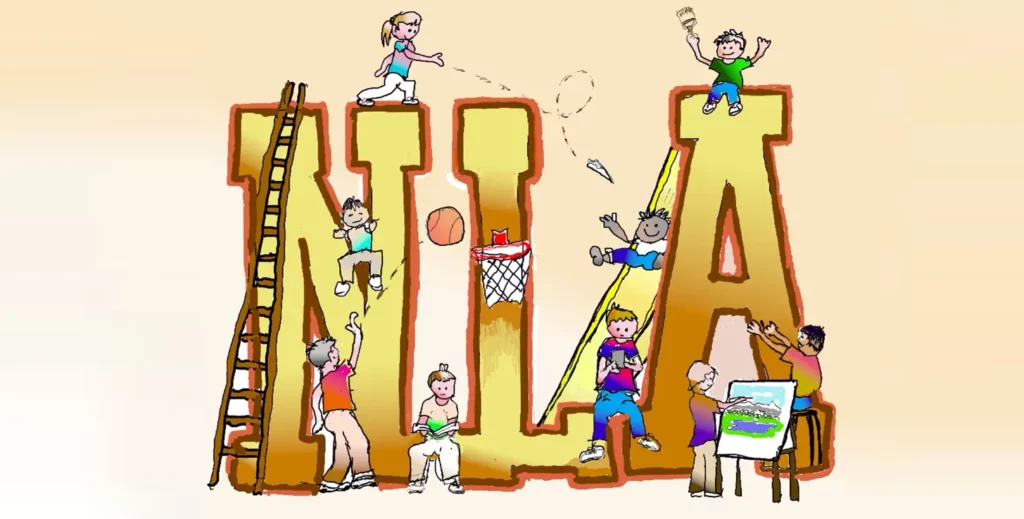
The NLA International Handout: English
This is the first version of the international handout explaining Natural Language Acquisition. Look for the versions in Dutch, French, and Spanish under the international tab.
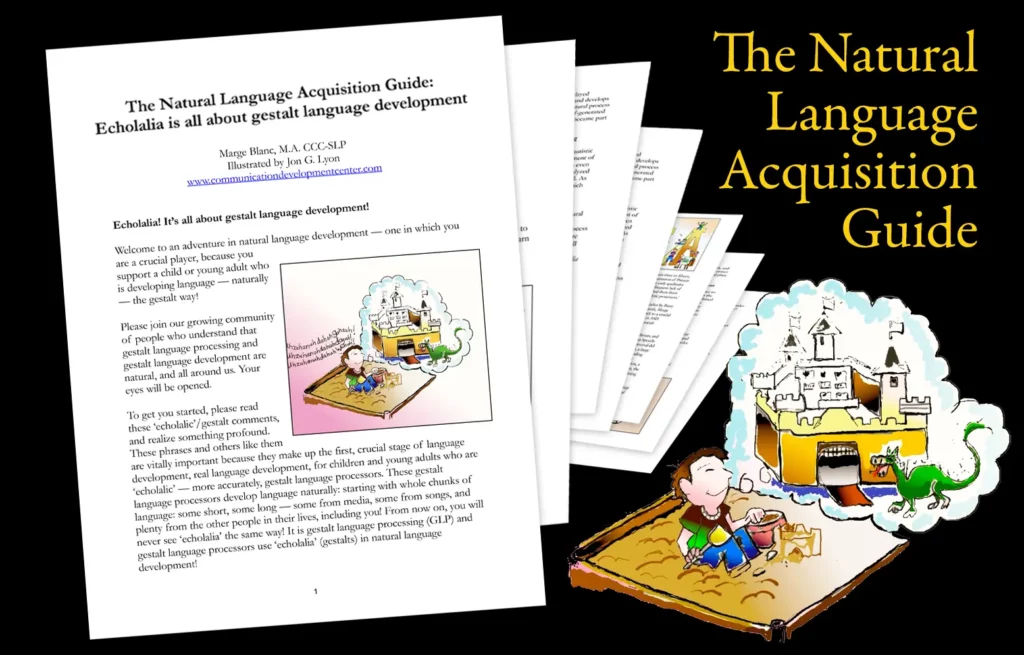
The Natural Language Acquisition Guide
Marge Blanc, M.A. CCC-SLP
Illustrated by Jon G. Lyon www.communicationdevelopmentcenter.com Echolalia! It’s all about gestalt language development! Welcome to an adventure in natural language development
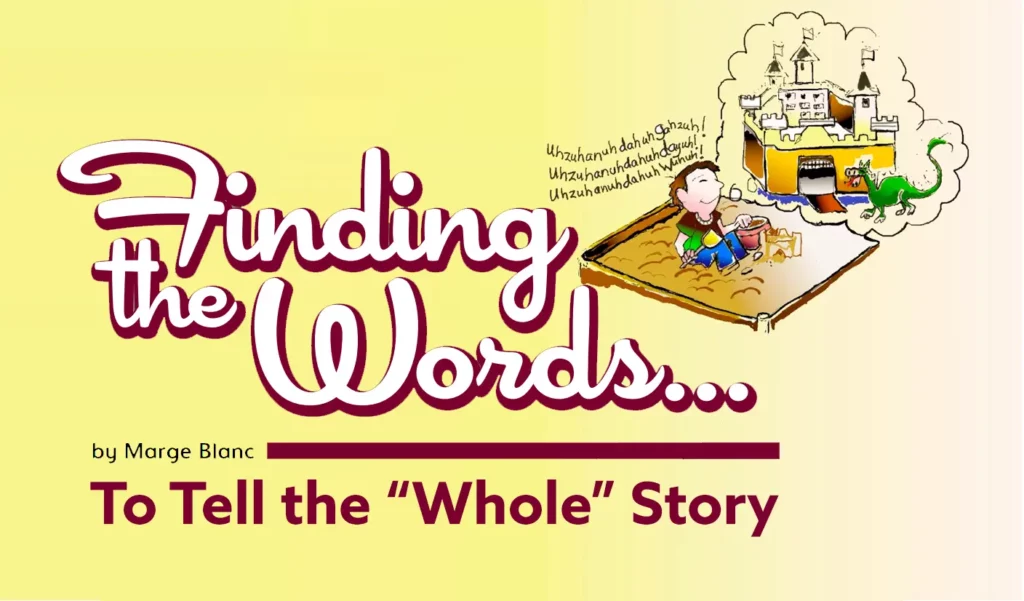
Finding the Words… To Tell the “Whole” Story
“Finding The Words… To Tell The ‘Whole’ Story” by Marge Blanc, M.A., CCC-SLP
